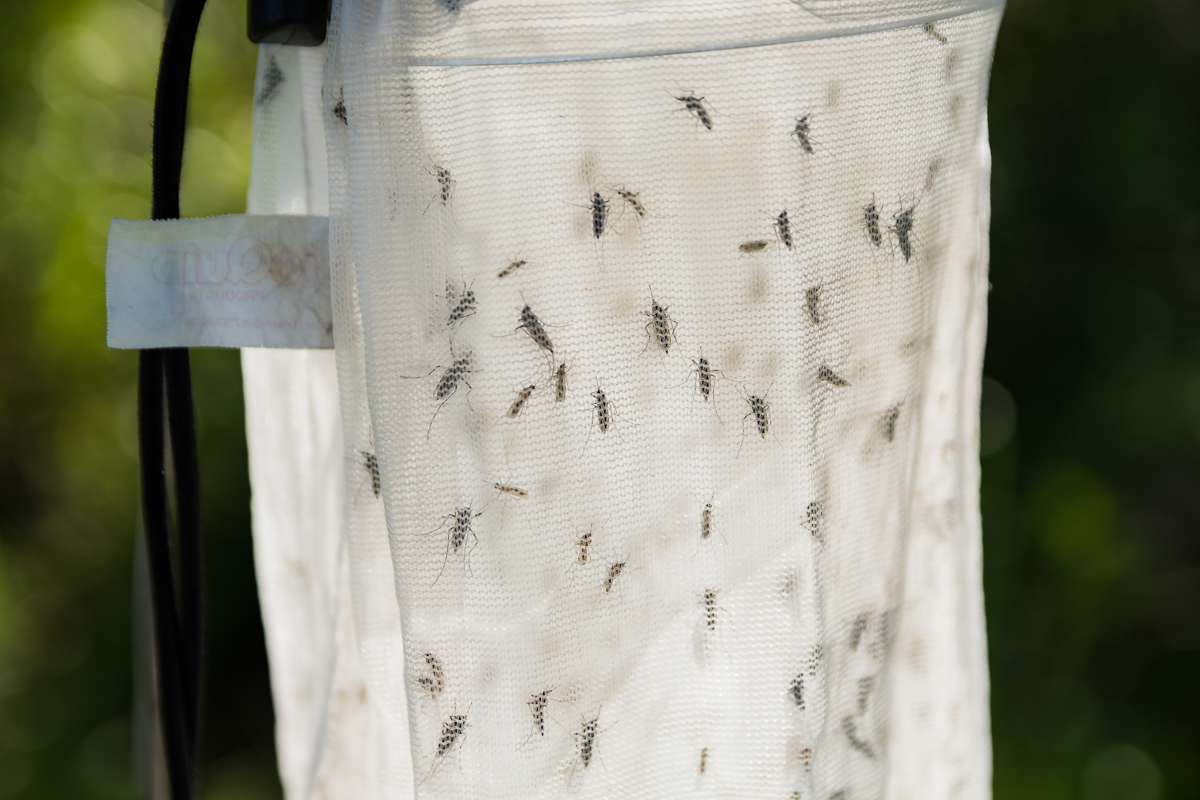
Fight the Bite: Orange County Prepared for Mosquito Season
With the hot, rainy afternoons upon us, residents should take comfort in the fact that Orange County Mosquito Control is working to keep mosquito populations manageable and curb the spread of mosquito-borne diseases such as encephalitis, dengue, West Nile, Zika and chikungunya do not spread.
“We actually perform sampling and check our surveillance sites every week, and we’re always watching for diseases,” said Steve Harrison, manager, Orange County Mosquito Control. “We also monitor travel, as individuals can come into this country with these illnesses. If someone tests positive for a mosquito-borne disease, we’ll get notified by the Department of Health and we’ll go to that location of concern and implement increased control measure in order to knock down any mosquitoes that may have fed or have the potential to feed on the afflicted individual.”
Mosquito-borne diseases and viruses spread from mosquito to person to mosquito. Take for example, an individual from South America who gets bitten by a mosquito carrying the dengue virus, then travels to Central Florida to visit. If bitten by local mosquitoes, the insects now carry the dengue virus, which they in turn can spread to others.
Mosquito Control uses Integrated Mosquito Management (IMM), a multifaceted and environmentally friendly approach to control these bloodsucking bugs. Team members go out into the community to educate and urge residents to Tip, Toss & Cover!, a technique used to reduce mosquito numbers on properties. Tip over standing water you find around your yard, toss out items that can collect water, and cover up exposed skin when outdoors (and use repellents that contain EPA approved ingredients such as DEET).
During rainy season, residents can experience an increase in the amount of standing water around their homes, and tropical events can cause major flooding and broken windows. “Flooding is conducive to mosquito breeding, and structural damage enables them to get inside homes,” explained Harrison. “After a storm, adult mosquitoes are flying all over the place, which is why we remain extra diligent and prepared this time of year.”
In December 2023, Mosquito Control will move to a new facility with almost double the warehouse space (16,875 square feet) and three times the office space (7,700 square feet including a lab). The lab will include an insectary – a room where humidity, temperature and light are controlled for mosquito breeding and hatching.
“The insectary is important for resistance studies and determining the effectiveness of the products we’re applying,” said Harrison. “Our surveillance program, which includes the lab, enables us to see which species of mosquitoes are most active and from what type of habitat they are emerging. This helps us to target and control the species in question. Our goal is to use everything at our disposal to keep mosquito populations, and the diseases they spread, under control.”
Remember to Tip, Toss & Cover! this summer, and if you see high numbers of mosquitos in your yard or neighborhood, call Orange County 311 so Mosquito Control can come out and assess the situation.
